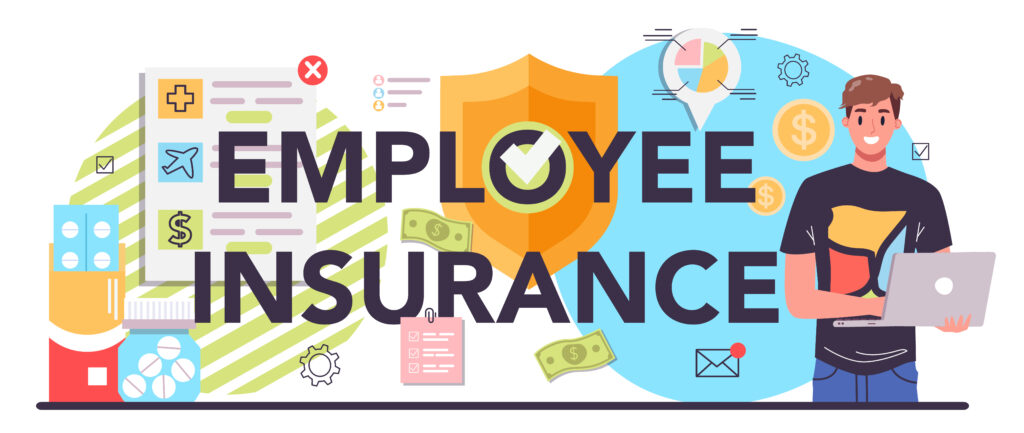What are Workers Compensation Insurance Benefits Explained.

Workers Compensation Insurance Benefits include all necessary medical care related to your injury or illness, including office visits, osteopathic, dental, podiatric, psychological, and chiropractic treatment, surgery and hospital care, x-rays, laboratory tests, prescribed drugs, authorized nursing services, and the provision, repair, or replacement of medical or surgical appliances or prosthetic devices, is available to you. You have the right to choose any medical provider authorized by the WCB. To find a list of authorized providers, you can visit the WCB website at wcb.ny.gov or call 1-800-781-2362. The cost of medical services required for your work-related injury or illness will be covered by workers’ compensation insurance carrier. Your doctor cannot charge you a fee. However, if your compensation claim is disputed by workers’ compensation insurance carrier, your doctor may ask you to sign Form A-9, which guarantees payment from you if the WCB rejects your claim or if you choose not to pursue your claim.
To ensure smooth billing, it is important to coordinate with both your healthcare and workers’ compensation providers. In case your injuries are not compensable, it is advisable to select treating physicians who are authorized by both the WCB and are participating providers under your health insurance plan. It is crucial not to submit bills to two carriers, one as ordinary and one as occupational disability, as this will result in a denial of Workers Compensation Insurance Benefits.
What Wage Replacements Are Available?
The level of wage replacement is determined by the negotiated agreement applicable to you. There are different levels of wage replacements available:
1. Statutory Benefits: These provide a weekly payment based on a formula. The formula calculates 2/3 of the injured employee’s average weekly wage for the previous year from the injury date, multiplied by the percent of disability/temporary impairment. There is a maximum amount set based on the New York State Average Weekly Wage (NYSAWW). The NYSAWW is the average weekly wage of the State of New York for the previous calendar year, reported by the Commissioner of Labor to the Superintendent of Insurance on March 31 each year. You can find the schedule of maximum rates
Please note that the benefit rate you receive is determined by the date of injury and does not increase with any subsequent changes in maximum Workers Compensation Insurance Benefits.
2. Supplemental Pay Program: Some contracts offer this program, which supplements the statutory benefit for up to nine months. This ensures that the total wage replacement equals 60 percent of the employee’s pre-disability gross wages.
3. Full Pay Leave: Under certain contracts, injured employees may receive up to six months of leave at full pay.
It’s important to remember that contractual Workers Compensation Insurance Benefits can vary based on the negotiated agreement, the date of disability, the severity of the disability, and the options chosen by the employee. For specific details about each Workers Compensation Insurance Benefits, please consult your union contract.
7 day Waiting Period for Wage Replacements?
Employees who qualify for wage replacement benefits under the Workers’ Compensation Law do not receive any wage replacements for the initial seven calendar days of their disability, unless the disability continues beyond 14 calendar days. If the disability lasts between eight and 14 calendar days, you may be eligible for wage replacements for the days within that period. If the disability extends beyond 14 calendar days, you may be entitled to retroactive wage replacement benefits starting from the first day of your disability. You have the choice to use your accrued leave credits to cover your absences during the first seven calendar days. If you do not wish to use your credits during the initial waiting period, you must inform your agency. Employees who are eligible to remain on their agency’s payroll while on Workers’ Compensation Leave at full pay will receive Workers Compensation Insurance Benefits from the first day of their disability.
Workers’ Comp Compensation rates
Compensation rates are calculated based on the earnings recorded in payroll records for the 52 weeks leading up to the accident. In cases where the employer has not yet submitted Form C-240, the case manager may establish a temporary rate. This temporary rate will be adjusted retroactively once the form is submitted.
When an employee is injured, they are entitled to a compensation rate that is two-thirds of the average weekly wage (AWW) in New York State for the 52-week period before the accident. However, this rate is subject to maximum limits and the degree of disability.
Can You Use Your Leave Accruals?
The utilization of leave accruals is contingent upon the negotiated agreement that applies to you. In general, employees are not allowed to utilize their leave credits except within the first seven calendar days of the initial waiting period. However, if you are absent for partial days upon returning to work due to a Workers’ Compensation incident, you can utilize your leave accruals to cover these absences. In the case of full days of absence, you will be placed on leave without pay and may be eligible for wage replacement benefits from workers’ compensation insurance carrier. Please refer to the specific contract language to ascertain the available Workers Compensation Insurance Benefits, When Will You Receive Wage Replacement Payments?
When can you expect to receive wage replacement payments? Unless your claim is disputed by workers’ compensation insurance carrier, the first payment will be made within 18 calendar days after your disability begins or 10 calendar days after your employer becomes aware of your accident, whichever is later, if you are not being paid by your agency. workers’ compensation insurance carrier requires an accident report from your employer and a medical report from your physician stating that your disability is related to your work-related injury or illness in order to pay wage replacement benefits. Payments will then be due every two weeks for the duration of your disability. If you receive a notice from workers’ compensation insurance carrier stating that your claim is being disputed, please contact workers’ compensation insurance carrier or your agency.
Please note that if your contract includes a supplemental wage payment, you will receive two checks at the beginning of your disability – one from your agency for the two weeks you worked before your accident (lag pay check), and another wage replacement check from workers’ compensation insurance carrier for the initial period of your disability. As a result of receiving these two checks at the same time, your payroll cycle will no longer be on a two-week lag. Therefore, when you recover, return to work, and are reinstated to your agency’s payroll, you will need to make up for this two-week lag period. This means that you will not receive your first agency paycheck until you have worked for approximately four weeks after returning to work.
How Will Your Wage Replacement Rate Be Determined?
The determination of your wage replacement rate depends on your disability classification and eligibility for Workers Compensation Insurance Benefits. If you are considered “totally” disabled and qualify for wage replacement benefits, you will receive two-thirds of your average weekly wage, up to the maximum benefit allowed. workers’ compensation insurance carrier will calculate your average weekly wage based on payroll records from the year prior to your disability or accident.
In addition, if you are eligible for supplemental payments, your total wage replacement will be a combination of the statutory benefit and the supplemental payment. This total will equal 60 percent of your pre-disability gross wages.
The Workers’ Compensation Law categorizes disabilities into different groups. If your disability is classified as total, you will receive the maximum benefits based on your average weekly wage. If your disability is classified as partial, you will receive a percentage of the Workers Compensation Insurance Benefits maximum, determined by your average weekly wage. You may also have the opportunity to participate in either the Mandatory Alternate Duty Program or Light Duty Assignment, depending on your eligibility. For more information, please contact your agency.
What Other Workers Compensation Insurance Benefits Do You Have?
The additional Workers Compensation Insurance Benefits provided to injured workers differ depending on their bargaining unit. These Workers Compensation Insurance Benefits can encompass extra wages, health insurance coverage, retirement service credit, seniority, and more. Detailed information regarding these other Workers Compensation Insurance Benefits can be found in the respective union contracts.
Compare New York Workers’ compensation Insurance Costs & Quotes
Seriously, understanding workers’ compensation is an essential part of being a small business owner. Put simply, if you have employees, you should have workers’ comp insurance. Even if you think you would never need to file a claim, not having it opens you up to state penalties, including fines. Having workers’ compensation insurance gives you and your employees peace of mind. You’ll know any on-the-job injury-related claims will be handled!
Ready to compare the cost of Workers’ Compensation Insurance policies for your business? Fill out our brief online application, and one of our agents will send Workers’ Compensation Insurance quotes to your email inbox. In most cases, you can expect to receive business insurance quotes within a matter of minutes.












